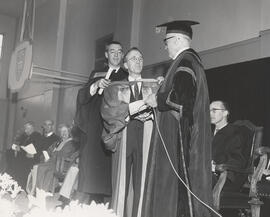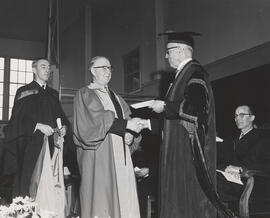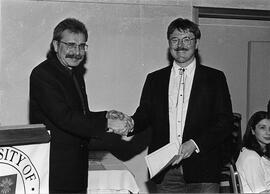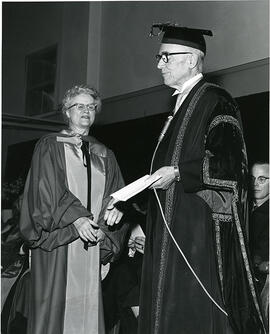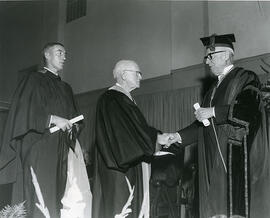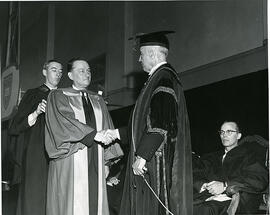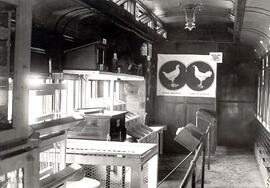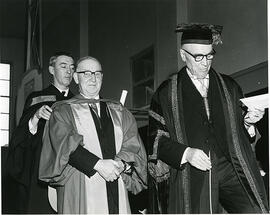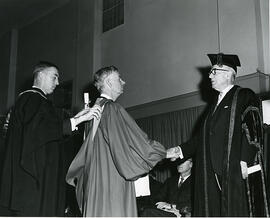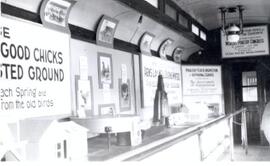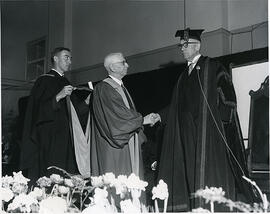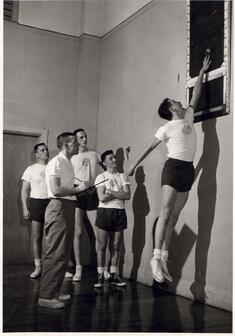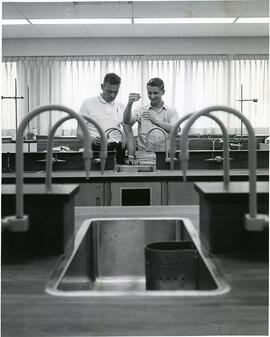Honourary Degrees - Presentation - T.C. Douglas
- A-1772
- Stuk
- 11 May 1962
F. Hedley Auld, University Chancellor, making presentation of an honourary Doctor of Laws degree to T.C. Douglas at Convocation held in Physical Education gymnasium. Norman K. Cram, University Register, prepares to hood recipient.
Bio/Historical Note: Thomas Clement Douglas PC CC SOM (1904-1986) was a Scottish Canadian politician who served as Premier of Saskatchewan from 1944-1961 and Leader of the New Democratic Party from 1961-1971. A Baptist minister, he was elected to the House of Commons of Canada in 1935 as a member of the Co-operative Commonwealth Federation (CCF). He left federal politics to become Leader of the Saskatchewan Co-operative Commonwealth Federation and then the seventh Premier of Saskatchewan. His cabinet was the first democratic socialist government in North America and it introduced the continent's first single-payer, universal health care program. After setting up Saskatchewan's universal healthcare program, Douglas stepped down and ran to lead the newly formed federal New Democratic Party (NDP), the successor party of the national CCF. He was elected as its first federal leader in 1961. Although Douglas never led the party to government, through much of his tenure the party held the balance of power in the House of Commons. He was noted as being the main opposition to the imposition of the War Measures Act during the 1970 October Crisis. He resigned as leader the next year, but remained as a Member of Parliament until 1979. Douglas was awarded many honorary degrees, and a foundation was named for him and his political mentor M. J. Coldwell in 1971. In 1981, he was invested into the Order of Canada, and he became a member of Canada's Privy Council in 1984, two years before his death. In 2004, a CBC Television program named Tommy Douglas "The Greatest Canadian", based on a Canada-wide, viewer-supported survey.

